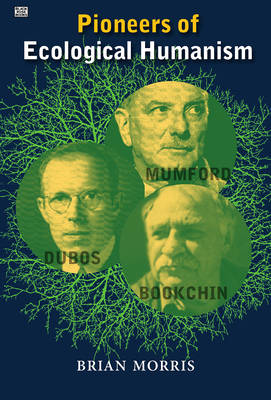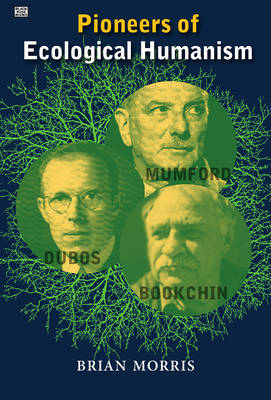
En raison d'une grêve chez bpost, votre commande pourrait être retardée. Vous avez besoin d’un livre rapidement ? Nos magasins vous accueillent à bras ouverts !
- Retrait gratuit dans votre magasin Club
- 7.000.000 titres dans notre catalogue
- Payer en toute sécurité
- Toujours un magasin près de chez vous
En raison de la grêve chez bpost, votre commande pourrait être retardée. Vous avez besoin d’un livre rapidement ? Nos magasins vous accueillent à bras ouverts !
- Retrait gratuit dans votre magasin Club
- 7.000.0000 titres dans notre catalogue
- Payer en toute sécurité
- Toujours un magasin près de chez vous
Description
"Brian Morris blazed a lot of trails. He is a scholar of genuine daring and great humanity, and his work deserves to be read and debated for a very long time to come." -David Graeber, author ofDebt: The First 5,000 Years In our world of ecological catastrophe and social crisis, some roundly condemn modern civilisation as the source of our Promethean predicament. What can follow is a rejection of humanism, science and the City and a turn to either nostalgic primitivism or esoteric spirituality. But do we really need to flee the city for the woods in order to build a free society? In this triple intellectual biography, Brian Morris lucidly discusses three intellectual giants who made an enormous, though often overlooked, contribution to modern ecology: Lewis Mumford, René Dubos, and Murray Bookchin. Morris argues that they have forged a third way beyond both industrialism and anti-modernism: ecological humanism (also known as social ecology), a tradition that embraces both ecological realities and the ethical and cultural wealth of humanism. In examining their thought, Professor Morris paves the way for fresh debate on ecology, charting an optimistic vision for the profound reharmonisation of nature and culture as well as the ecological, egalitarian and democratic transformation of our cities and society. Essential reading for anyone with an interest or active role in ecology or philosophy and their associated disciplines, Pioneers of Ecological Humanism is written in a clear and refreshingly direct style that will appeal to academics, activists, and armchair ecologists alike. Leaving school at the age of fifteen, Brian Morris had a varied career: foundry worker, seaman, and tea-planter in Malawi, before becoming a university teacher. Now Emeritus Professor of Anthropology at Goldsmiths College, University of London, he is the author of numerous articles and books on ethnobotany, religion and symbolism, hunter-gatherer societies and concepts of the individual. His books include Richard Jefferies and the Ecological Vision (2006), Religion and Anthropology: A Critical Introduction (2006), Insects and Human Life (2004) and Kropotkin: The Politics of Community (2004). Black Rose Books is also the publisher of his Bakunin: The Philosophy of Freedom (1993) and the forthcoming Anarchist Miscellany. Pioneers of Ecological Humanism is essential reading for anyone concerned with these issues. Conversant with the history of ideas, Morris places Bookchin especially in a context that has eluded other authors who have treated his work. His writing style is lucid and accessible.Highly recommended. - Janet Biehl, author, partner of Murray Bookchin 275 pages, Bibliography and Index Paperback ISBN: 978-1-55164-607-7 Hardcover ISBN: 978-1-55164-609-1 eBook ISBN: 978-1-55164-611-4 Table of Contents Preface Ecological Humanism: An Introduction Part 1: Lewis Mumford and Organic Humanism 1. The Radical Scholar 2. Lewis Mumford: The Formative Years 3. Technics and Civilisation 4. The Culture of Cities 5. Western Culture and its Transformation: The Rise of Mechanistic Philosophy 6. The Insurgence of Romanticism and Utilitarian Philosophy 7. Mumford's Organic Philosohpy 8. The Renewal of Life Part 2 René Duos and Ecological Humanism 9. René Dubos and the Celebration of Life 10. The Living World and Human Nature 11. Sociocultural Evolution and the Human Personality 12. The Ecology of Health and Disease 13. The Theology of the Earth 14. Humanized Landscapes 15. The Wooing of the Earth 16. Science and Holism Part 3 The Social Ecology of Murray Bookchin 17. Bookchin's Life and Work 18. The Environmental Crisis and Eco-Anarchism 19. Toward an Ecological Society 20. The Concept of Ecological Society 21. The Deep Ecology Movement 22. Deep Ecology, Biocentrism and Misanthropy 23. Neo-Malthusianism and the Politics of Deep Ecology 24. The Philosophy of Social Ecology 25. In Defence of the Enlightenment Bibliography Index
Spécifications
Parties prenantes
- Auteur(s) :
- Editeur:
Contenu
- Nombre de pages :
- 275
- Langue:
- Anglais
Caractéristiques
- EAN:
- 9781551646077
- Date de parution :
- 01-06-17
- Format:
- Livre broché
- Format numérique:
- Trade paperback (VS)
- Dimensions :
- 152 mm x 229 mm
- Poids :
- 421 g

Les avis
Nous publions uniquement les avis qui respectent les conditions requises. Consultez nos conditions pour les avis.






